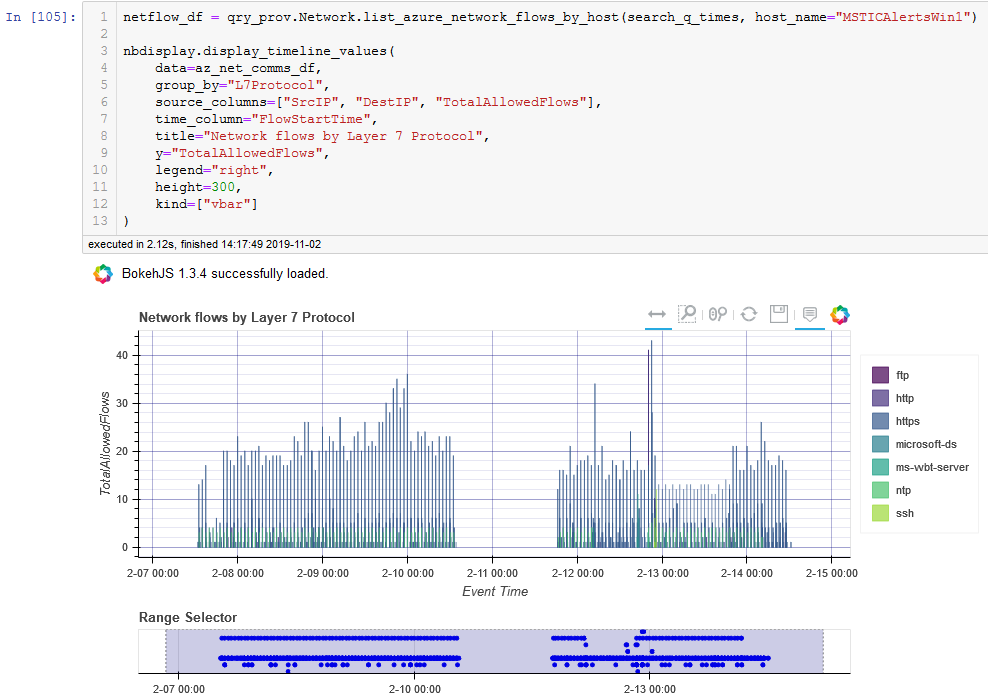Jupyter notebooks are an interactive development and data analysis environment hosted in a browser. The open API supported by Microsoft Sentinel allows you to use Jupyter notebooks to query, transform, analyze and visualize Microsoft Sentinel data. This makes notebooks a powerful addition to Microsoft Sentinel and is especially well-suited to ad-hoc investigations, hunting or customized workflows.
More information on getting started with Microsoft Sentinel and Azure Notebooks
This repository contains notebooks contributed by Microsoft and the community to assist hunting and investigation tasks in Microsoft Sentinel.
There are several notebooks at the top level of the repo - eventually only a few introductory notebooks will reside here. For the moment, notebooks at the top level include all of those used in the Microsoft Sentinel portal.
If you have never used notebooks in Microsoft Sentinel before you should run through the Getting Started Notebook
This contains notebooks designed for use by you in Microsoft Sentinel. Some of these are intended to illustrate specific techniques or investigation approaches
- example-notebooks Examples of techniques or features
- feature-tutorials MSTICPy feature tutorial notebooks
- how-tos Articles and notebooks illustrating specific techniques
- other-language-kernels Notebooks using alternative kernels
- training-notebooks Notebooks used in training webinars
- deprecated-notebooks Older, deprecated notebooks
There are also support folders - source and utils
<style> .nb_table, th, td { border: 1px solid; text-align: left; border-collapse=collapse; margin-left: auto; margin-right: auto; } .width-f { width: 10px !important; } .width-nb { width: 300px !important; } </style>
You can view any of the notebooks directly on GitHub just by clicking on them.
For higher fidelity rendering we'd recommend Jupyter nbviewer.
- Open a notebook here and copy the URL (or copy the a link from the table above)
- Go to https://nbviewer.jupyter.org/ and paste the URL into the location text box.
- Hit the Go! button
- Getting Started notebook.
- Configuring notebook environment notebook.
- Run a demonstration notebook in
- Read more about the use of Jupyter notebooks in Microsoft Sentinel on the Microsoft Sentinel Technical Community blog.
- Read more about the Azure ML Notebooks Service.
- Read more about MSTICPy - the CyberSecurity Python library that powers most of the notebooks
For questions or feedback, please file an issue or contact asinotebooks@service.microsoft.com
This project welcomes contributions and suggestions. Most contributions require you to agree to a Contributor License Agreement (CLA) declaring that you have the right to, and actually do, grant us the rights to use your contribution. For details, visit https://cla.opensource.microsoft.com.
When you submit a pull request, a CLA bot will automatically determine whether you need to provide a CLA and decorate the PR appropriately (e.g., status check, comment). Simply follow the instructions provided by the bot. You will only need to do this once across all repos using our CLA.
This project has adopted the Microsoft Open Source Code of Conduct. For more information see the Code of Conduct FAQ or contact opencode@microsoft.com with any additional questions or comments.
